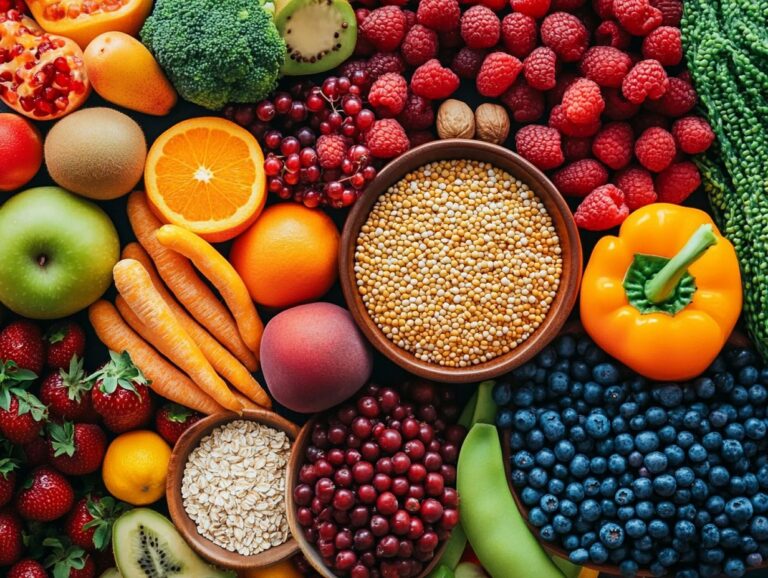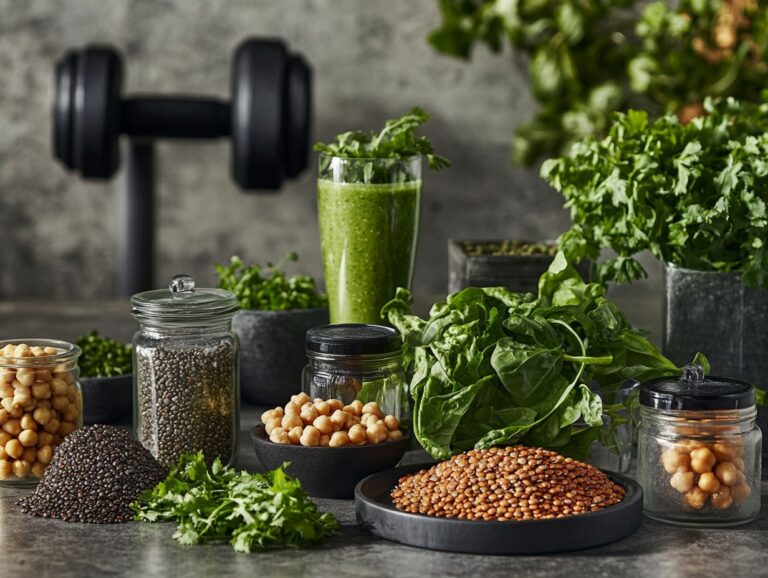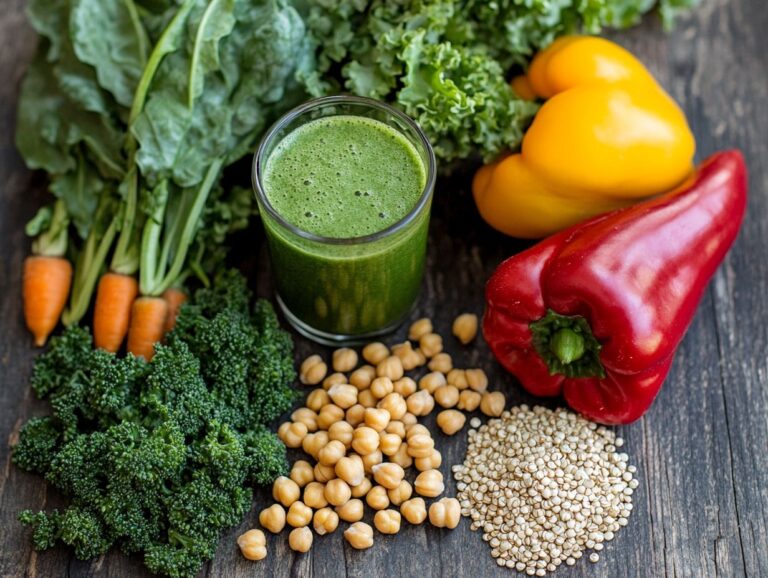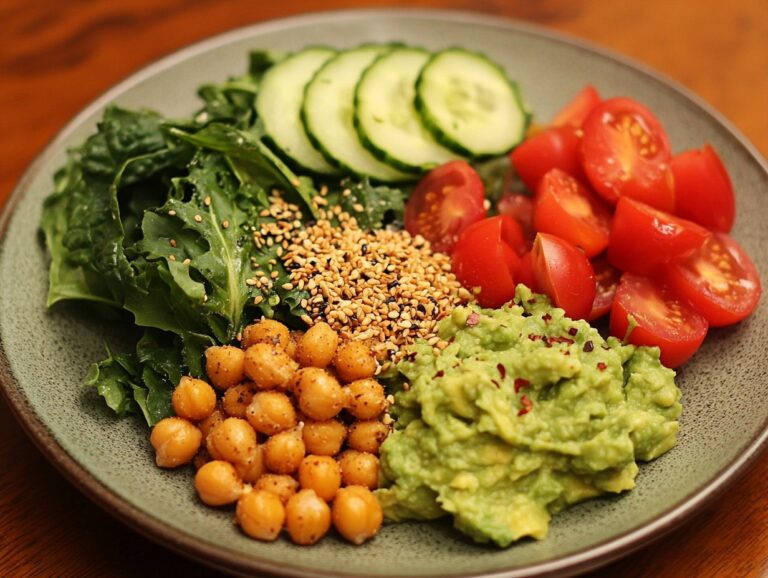Adopting a vegan diet, which is a plant-based lifestyle excluding all animal products, can be an excellent decision in terms of health and ethics; however, it may occasionally lead to unintended weight gain. Understanding the factors that contribute to weight gain, including the overconsumption of processed vegan foods and high-calorie vegan desserts, can assist individuals in navigating their plant-based journey more effectively. From common challenges such as nutritional deficiencies in essential nutrients like B-12 and iron, and overconsumption, to the significance of balanced meal planning, regular exercise, and portion control, numerous aspects warrant consideration. This guide outlines the potential causes of weight gain associated with a vegan diet, identifies common mistakes to avoid, such as relying on vegan junk food, and presents strategies for maintaining a healthy weight while reaping the benefits of plant-based eating.
Understanding Weight Gain on a Vegan Diet
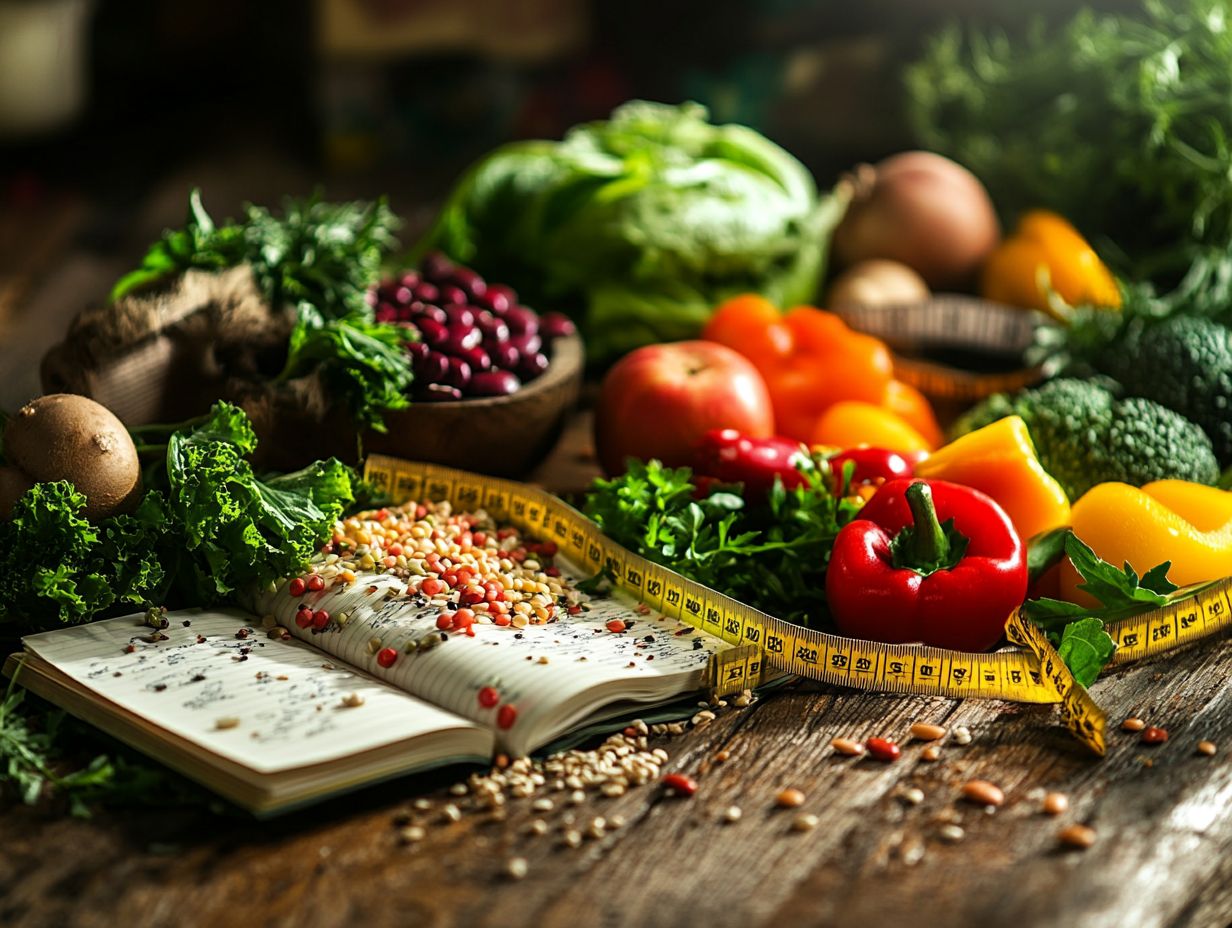 Understanding weight gain on a vegan diet requires an awareness of the intricate relationships between dietary choices, calorie intake, and body composition. A vegan diet, which excludes all animal products, can still result in weight gain due to factors such as the overconsumption of processed vegan foods like vegan desserts, insufficient calorie intake, and a lack of emphasis on nutrient-dense plant foods rich in fiber and healthy fats. Registered dietitian Melissa Mitri underscores the importance of balancing the various elements of a vegan lifestyle, including plant-based protein sources like tofu and lentils, in order to attain sustainable weight loss and health objectives.
Understanding weight gain on a vegan diet requires an awareness of the intricate relationships between dietary choices, calorie intake, and body composition. A vegan diet, which excludes all animal products, can still result in weight gain due to factors such as the overconsumption of processed vegan foods like vegan desserts, insufficient calorie intake, and a lack of emphasis on nutrient-dense plant foods rich in fiber and healthy fats. Registered dietitian Melissa Mitri underscores the importance of balancing the various elements of a vegan lifestyle, including plant-based protein sources like tofu and lentils, in order to attain sustainable weight loss and health objectives.
Possible Causes and Factors
Several factors contribute to weight gain on a vegan diet, including the types of foods consumed and overall calorie intake. Individuals may unintentionally choose high-calorie processed vegan foods, which, despite being plant-based, can impede effective weight management. It is essential to consider the balance of healthy fats, such as those found in avocado and coconut milk, and carbohydrates in meal choices, as these macronutrients play a crucial role in overall health. For example, while avocados and nuts provide beneficial fats, they are also calorie-dense and should therefore be consumed in moderation. Incorporating fiber-rich plant foods, such as legumes, whole grains, vegetables, and beans, is vital, as they contribute to satiety. This helps mitigate excessive calorie consumption and promotes a more balanced diet.
Common Mistakes to Avoid
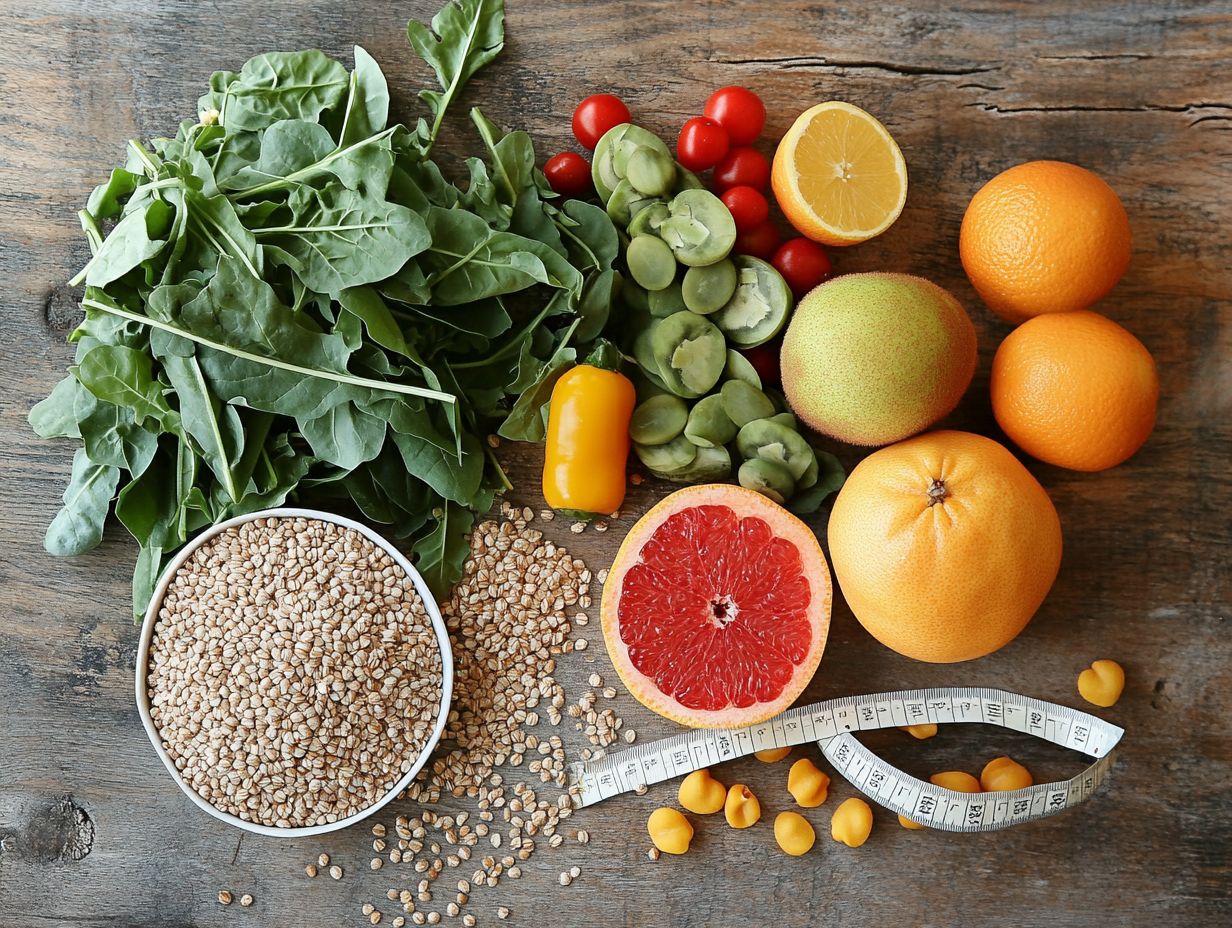 Numerous individuals who adopt a vegan diet often encounter common pitfalls that can impede their weight management efforts, resulting in nutritional deficiencies and the potential for weight gain.
Numerous individuals who adopt a vegan diet often encounter common pitfalls that can impede their weight management efforts, resulting in nutritional deficiencies and the potential for weight gain.
Nutritional Deficiencies and Overconsumption
Nutritional deficiencies and overconsumption are significant concerns that can arise from poorly planned vegan diets, often leading individuals to mistakenly believe that all vegan foods, including those from popular outlets like Trader Joe’s and Whole Foods, are inherently healthy due to the health halo effect. This misconception can result in the neglect of essential nutrients necessary for optimal health, including vitamins B12 and D, iron, and omega-3 fatty acids. While some individuals may be tempted to consume processed vegan snacks that are high in calories but low in nutritional value, it is crucial for those following a plant-based lifestyle to understand the importance of incorporating balanced protein sources, such as legumes, nuts, and whole grains. Furthermore, portion control is essential for maintaining overall well-being, as is the practice of mindful eating. Mindful eating encourages individuals to savor their meals and be attuned to their hunger cues, ultimately promoting healthier dietary choices.
Healthy Strategies for Weight Management on a Vegan Diet
 Implementing effective strategies for weight management within a vegan diet is essential for achieving sustainable results while maintaining nutritional quality and the enjoyment of food.
Implementing effective strategies for weight management within a vegan diet is essential for achieving sustainable results while maintaining nutritional quality and the enjoyment of food.
Balanced Meal Planning and Portion Control
Balanced meal planning and portion control are essential components of a successful vegan diet that promote healthy eating habits and prevent excessive calorie intake. By incorporating a diverse array of nutrients, individuals can ensure that their meals are not only satisfying but also nutritionally complete. Including healthy fats from sources such as avocados and nuts, in combination with protein from legumes and whole grains, results in well-rounded dishes that support energy levels and overall health. Practicing portion control is crucial in maintaining a healthy weight, as it encourages mindful eating and prevents overeating. Employing techniques such as measuring servings and utilizing smaller plates can significantly aid in achieving this balance, making meal planning an effective strategy for individuals seeking to enhance their dietary routines.
Incorporating Exercise and Physical Activity
 Incorporating regular exercise and physical activity is essential for effective weight management while adhering to a vegan diet, as it complements dietary efforts with a comprehensive approach to health. Engaging in a variety of exercise modalities, such as cardiovascular activities, strength training, and flexibility workouts, can significantly enhance weight loss and overall well-being. Cardiovascular exercises, including running, cycling, and swimming, not only facilitate calorie burning but also contribute to improved cardiovascular health. Concurrently, strength training is instrumental in developing lean muscle mass, which in turn elevates metabolism and supports sustainable weight loss. Yoga and Pilates play a vital role in enhancing flexibility and promoting mental well-being, thereby creating balance within an individual s fitness regimen. The interplay between physical activity and nutrition is critical in fostering a vibrant lifestyle; when these elements are combined with a plant-based diet that is abundant in whole foods, individuals are better positioned to achieve their health objectives effectively. By establishing a routine that incorporates these diverse forms of exercise, individuals can improve their physical fitness and simultaneously benefit from the nutrient-dense foods characteristic of a vegan lifestyle, including staple ingredients like tofu, lentils, and beans.
Incorporating regular exercise and physical activity is essential for effective weight management while adhering to a vegan diet, as it complements dietary efforts with a comprehensive approach to health. Engaging in a variety of exercise modalities, such as cardiovascular activities, strength training, and flexibility workouts, can significantly enhance weight loss and overall well-being. Cardiovascular exercises, including running, cycling, and swimming, not only facilitate calorie burning but also contribute to improved cardiovascular health. Concurrently, strength training is instrumental in developing lean muscle mass, which in turn elevates metabolism and supports sustainable weight loss. Yoga and Pilates play a vital role in enhancing flexibility and promoting mental well-being, thereby creating balance within an individual s fitness regimen. The interplay between physical activity and nutrition is critical in fostering a vibrant lifestyle; when these elements are combined with a plant-based diet that is abundant in whole foods, individuals are better positioned to achieve their health objectives effectively. By establishing a routine that incorporates these diverse forms of exercise, individuals can improve their physical fitness and simultaneously benefit from the nutrient-dense foods characteristic of a vegan lifestyle, including staple ingredients like tofu, lentils, and beans.
Addressing Emotional and Social Factors
Addressing emotional and social factors is essential for individuals following a vegan diet, as these elements can substantially impact eating behaviors and weight management outcomes.
Managing Stress and Emotional Eating
Managing stress and emotional eating is crucial for maintaining a healthy diet and preventing weight gain, especially within the framework of a vegan lifestyle. By incorporating mindfulness techniques and effective coping strategies into daily routines, individuals can establish a strong defense against cravings driven by stress and emotional eating. Mindfulness practice fosters a heightened awareness of thoughts and emotions, allowing individuals to pause and reflect before turning to food for comfort. Furthermore, substituting nutrient-dense vegan foods such as vibrant fruits, vegetables, whole grains, and plant-based proteins like seitan and nutritional yeast can facilitate the development of healthier eating patterns. These choices not only nourish the body but also offer a sense of satisfaction that may reduce the inclination to engage in emotional eating. By adopting these practices, individuals can build resilience, making it easier to handle life’s challenges without resorting to unhealthy dietary habits.
Navigating Social Situations and Peer Pressure
Navigating social situations and peer pressure can present challenges for individuals adhering to a vegan diet; however, the development of effective strategies can facilitate healthier choices and enhance overall outcomes. A thorough understanding of the dynamics present in these social environments is essential. Well-meaning friends and family members may not fully appreciate the commitment involved in a plant-based lifestyle, which can inadvertently lead to pressure to partake in non-vegan options. In this context, establishing a robust support system is vital. Surrounding oneself with like-minded individuals cultivates a sense of belonging and accountability, thereby simplifying the maintenance of healthy eating habits and adherence to dietary preferences. Making informed decisions during social gatherings such as proposing vegan-friendly dining establishments or bringing a dish to share enables individuals to adhere to their dietary commitments while minimizing feelings of isolation. Ultimately, approaching this journey with confidence can transform social interactions into valuable opportunities for connection and personal growth.

